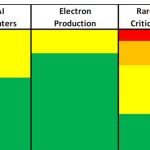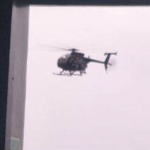(Photo ATTA KENARE)
A top Iranian official said Wednesday that Tehran was open to foregoing enriching weapons-grade uranium in a new nuclear deal with the U.S., according to NBC News.
Ali Shamkhani, a top adviser to Iran’s Supreme Leader Ali Khamenei, told NBC News that Iran would commit to never developing nuclear weapons, destroy its stockpile of weapons-grade uranium and allow international oversight to ensure it is only pursuing civilian nuclear applications in exchange for the U.S. lifting all economic sanctions. The statement marks one of the most overt signals from Iran signaling willingness to strike a new nuclear deal with the U.S. as sanctions continue to pile on.
The Iranian regime currently has the capability to make nuclear weapons in three weeks’ time with its current stockpiles of 60% enriched uranium, the International Atomic Energy Agency (IAEA) stated in February.
“It’s still possible. If the Americans act as they say, for sure we can have better relations,” Shamkhani said according to NBC News. “It can lead to a better situation in the near future.”

US Special Envoy to the Middle East Steve Witkoff arrives for a signing ceremony at the Royal Palace in Doha on May 14, 2025. (Photo by KARIM JAAFAR/AFP via Getty Images)
U.S. Special Envoy Steve Witkoff will meet with Iranian officials in Oman on Sunday on the tail-end of President Donald Trump’s tour around the Middle East this week.
The Trump administration threatened in March that it would be willing to follow Israel in striking Iranian nuclear facilities if the Iranian regime did not agree to a deal. Reportedly, there were internal schisms among interventionist and restraint-minded Trump administration officials about how to best approach Iran and its nuclear program.
Trump said during a speech on his state visit to Qatar that Iran was “very close” to a deal, reiterating his stance that Iran “can’t have a nuclear weapon.” In the speech, Trump encouraged the Iranians to make a deal quickly and stop destabilizing the region with its terror proxies, threatening massive economic pressure if they do not.
One of the largest Trump administration hawks on Iran, former National Security Advisor Mike Waltz, was moved earlier in May to become the ambassador to the United Nations, and Secretary of State Marco Rubio assumed Waltz’s former responsibilities.
The Obama administration’s Iran nuclear deal, titled the Joint Comprehensive Plan of Action (JCPOA), also allowed for limited enrichment within civilian guidelines with international oversight from the IAEA. The deal was criticized by many conservatives at the time for being too soft on Tehran, pointing to insufficient oversight and sunset provisions that limited the deal’s scope.
Even though the first Trump administration pulled out of the JCPOA, some observers have noted the similarities between the JCPOA and early Trump administration proposals regarding oversight and civilian-level enrichment.
The State Department referred the Daily Caller News Foundation to a Thursday press conference when asked for comment.











